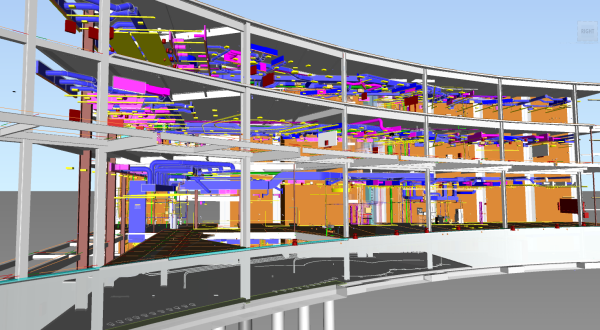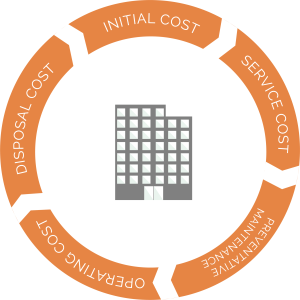Hyper Efficient Building Design
Our team is committed to designing buildings that find the balance between the finite resources of both Mother Nature and father’s wallet. We offer services that design sustainable systems with lowest possible energy consumption and sufficient on-site renewable energy to ensure net zero performance.
Some of the cost effective, eco-friendly solutions that drive us towards sustainability and Net Zero goals include:

Evaluation of system selection
and initial costs

Life-Cycle Cost Analysis
and energy modeling

Low Energy Use Index

Utilization of onsite and offsite
renewable energy sources

Solar and daylight harvesting
methods

High performance building
envelopes

Demand control ventilation

EV charging stations

Microgrid

Modern lighting controls

LED lighting

Waterless urinals

Low-flow showerheads

Water-efficient appliances

Efficient HVAC systems and controls
Building Information Modeling + Sustainability

With Building Information Modeling (BIM) data generated during a project’s design phase enables faster, safer, and less wasteful construction, leading to a more streamlined construction process, cost-effective and sustainable operation, ease of maintenance, and seamless decommissioning when equipment reaches the end of its service life.
During design, BIM leverages clash detection, enabling the design team to adjust quickly and efficiently, eliminating the need for ad-hoc solutions during construction – saving time, materials, and labor.
Design changes can be implemented with minimal schedule or cost impact, allowing more dynamic energy, environmental, and economic analysis evaluations, which in turn leads to more informed decisions.
Life-Cycle Cost Analysis

Another unique tool we use in design is Life-Cycle Cost Analysis (LCCA). LCCA is a process of evaluating the economic performance of a building over its entire life, considering all costs of acquiring, owning, maintenance and disposing of a building or building system.
LCCA is useful when there are project alternatives that fulfill the same performance requirements but differ in initial and operating costs. For example, LCCA will help determine whether the incorporation of a high-performance HVAC, which may increase initial cost but result in reduced operating and maintenance costs, is cost-effective or not in the long run.
